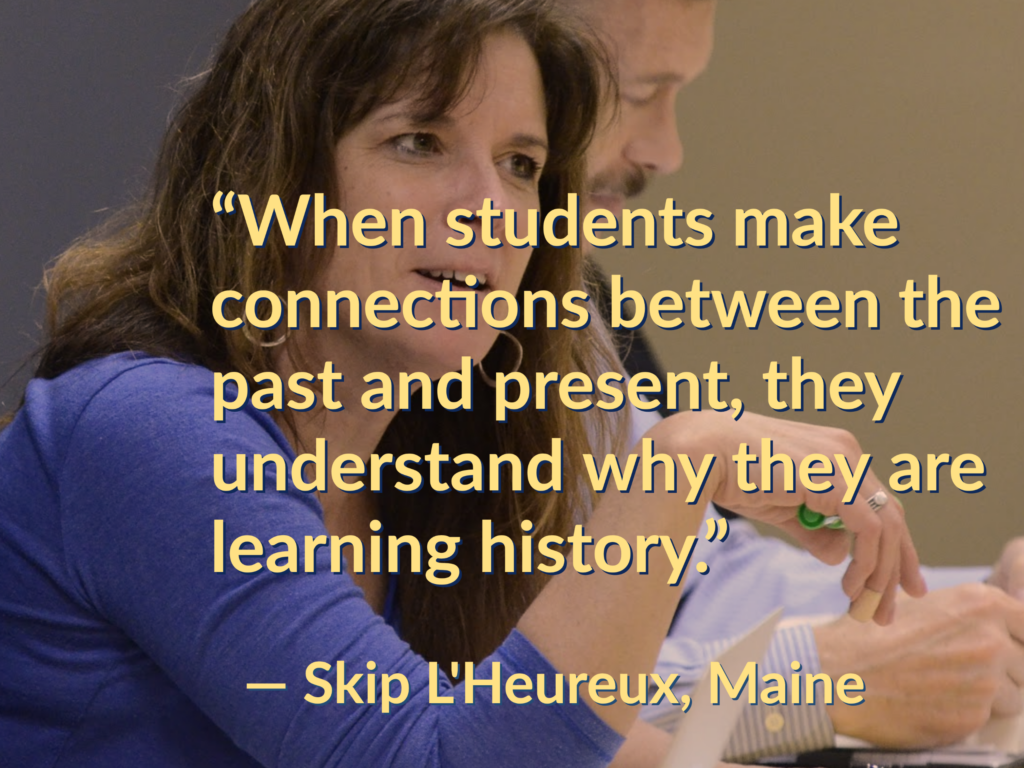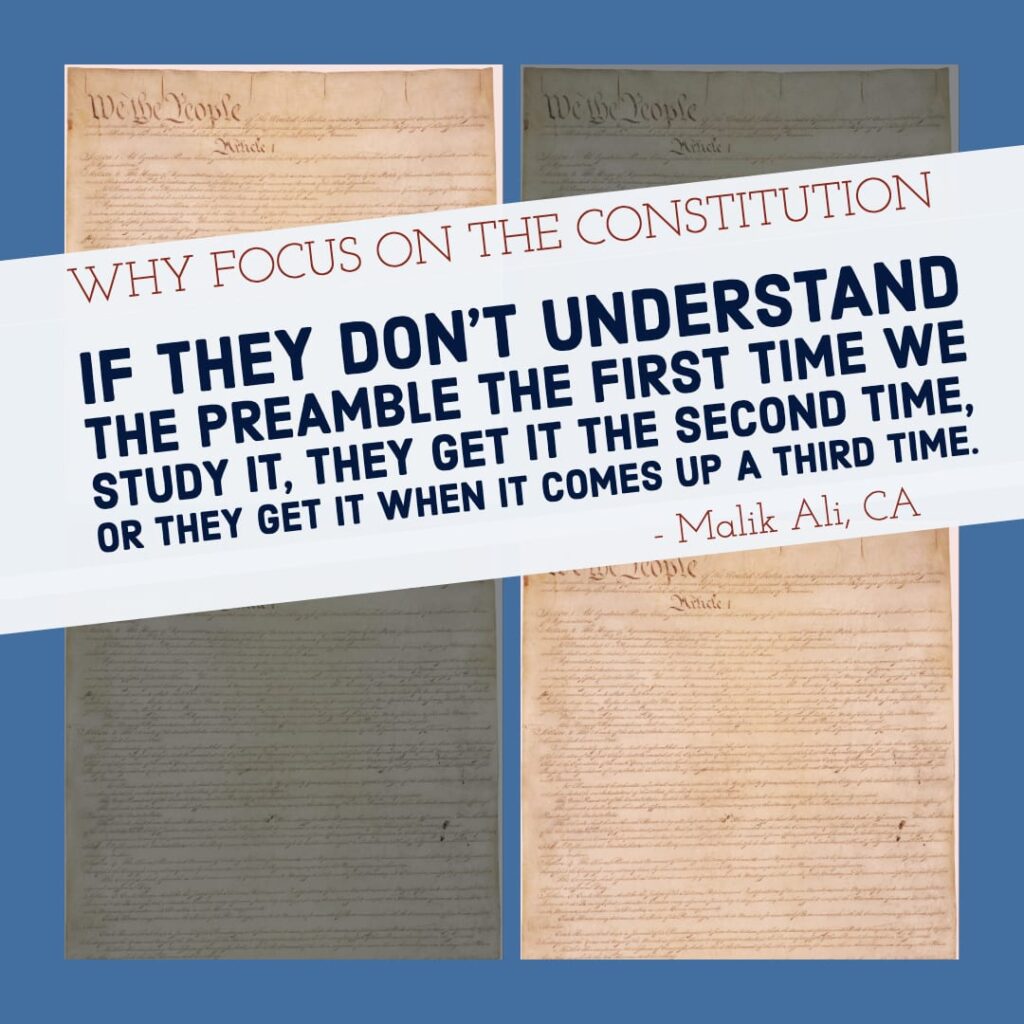Statement of Principles
The most important work in America is teaching American history and government. This work is essential to preserving what has always been distinctively good about America.
Why is the Study of American History and Government So Important?

History functions for a nation as memory does for an individual. Without memory, an individual or a nation has no identity, and ultimately, no existence. With false memories, each has only a distorted sense of self, misconceptions of virtues and vices, strengths and weaknesses and hence little chance of a better life.
Government in the fullest sense is the way a people organize their common life to make it a better life. In the United States, the fullest expression of government is the self-governing of the American people. Preserving self-government requires clear-sighted attention to our fundamental principles.
Why Do We Focus on Primary Documents?
These principles are found in the primary documents of our history. We aim to understand those documents as their authors did. This implies that we can escape our own time and understand something from another time. Indeed, one cannot deny this without self-contradiction: the denial would have to claim to be always true, to escape our time, as it denied such an escape was possible. If we can understand the documents of the past, then our minds are free from the present. If they are free from the present, then they are also free from the limits of gender, race and socio-economic status that characterize us here and now. That our minds are free from these things means that we share a common humanity. It means, in the most important sense, that all men are created equal. Using primary documents to understand what their authors meant is simultaneously a defense of human freedom and equality.
What is the Connection between Teaching with Primary Documents and Preserving American Civic Virtues?

Our manner of using these documents reinforces, as it derives from, the primacy of human equality and freedom, which we understand to be not only fundamental political principles but fundamental educational principles. We engage with our students as equals with us in devotion to the truth and to understanding the documents we study as their authors understood them. We talk with students, rather than at them, because that is how free and equal individuals converse with one another. Our manner implies, in brief, that our classrooms are small republics. What is required for a serious conversation about important things (free attention to the truth, listening to others, waiting one’s turn to speak, modest but assertive statements of one’s views, etc.) are, writ large, the kind of virtues needed for republican life, for ruling and being ruled in turn. Our manner encourages everyone involved to raise their expectations of themselves, making themselves better students, teachers and citizens than they would otherwise be. At its best, an American history and government class—wherever it occurs—reenacts the Founding of the Republic and thereby preserves it. It strengthens the American republic by inculcating the manners, understanding, and inclinations self-governing citizens require.
We are dedicated to making every American history and government class in America its best.
